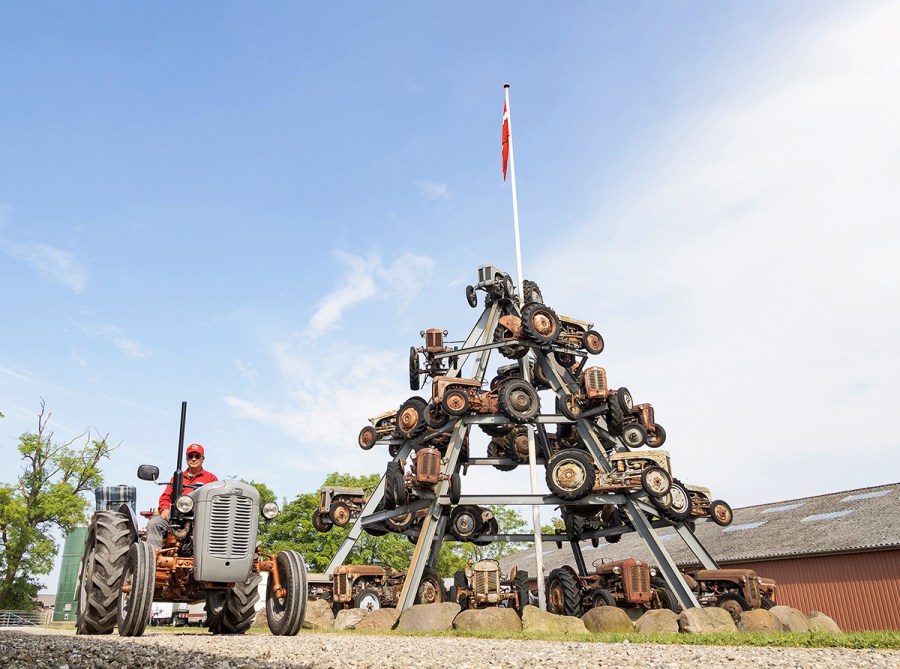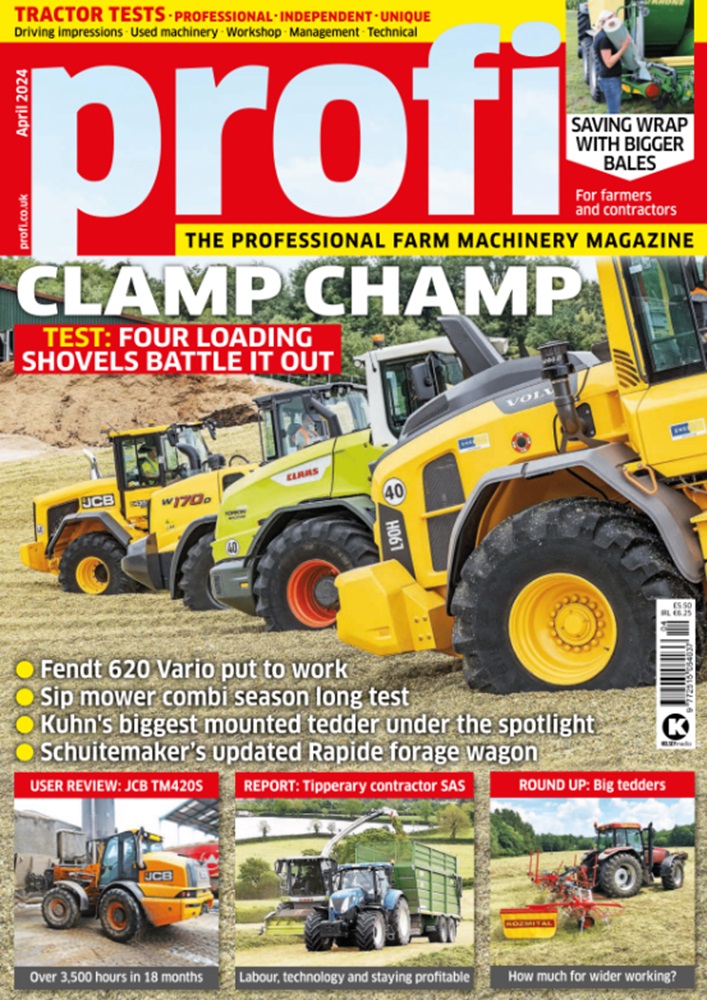The Ferguson Museum Danmark is located near Juelsminde, a small town on the east coast of Jutland in Denmark — a place that’s worth the journey (back in time).
KEEPING IT BRIEF
- According to the company, southeast Denmark is home to the largest Ferguson collection in the world.
- More than 250 Massey Ferguson tractors and attachments are on display.
- Every year at the end of May, the museum hosts its Ferguson Days.
At first glance, the beautifully kept Ankerslund farm looks like your typical agricultural enterprise in the undulating countryside near the Danish Baltic Sea coast … if it wasn’t for the small grey Fergie and the sign at the entrance to the farm: “Danmarks Ferguson Museum, Verdens største Ferguson Samling”. The company confidently boasts itself as being the host of the “world’s largest Ferguson collection”. The company’s opening hours are also impressive: open daily from 9:00am to 6:00pm.
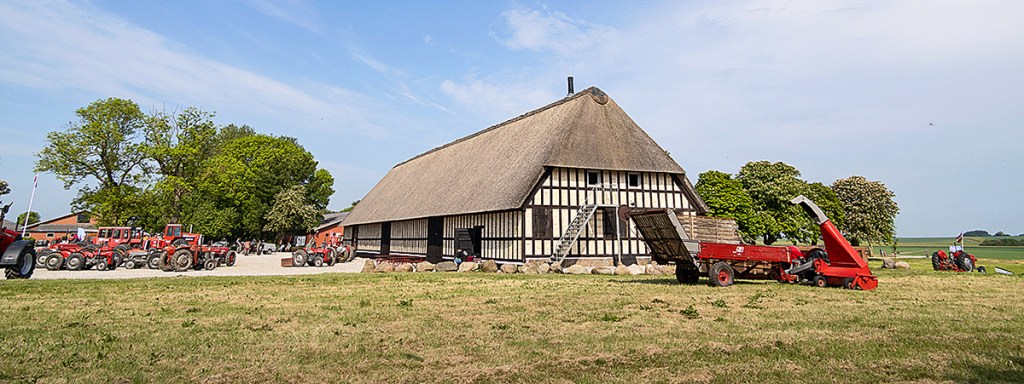
Ferguson days
On the day of our visit, it was clear that everything here revolves around Massey Ferguson: the grey and red exhibits are scattered all over the place. Every year at the end of May, the museum organizes the Ferguson Days, when many of the tractors and implements that are normally on show in the two large exhibition halls move out into the open air of the farm, and a small parts market is set up in the hall.
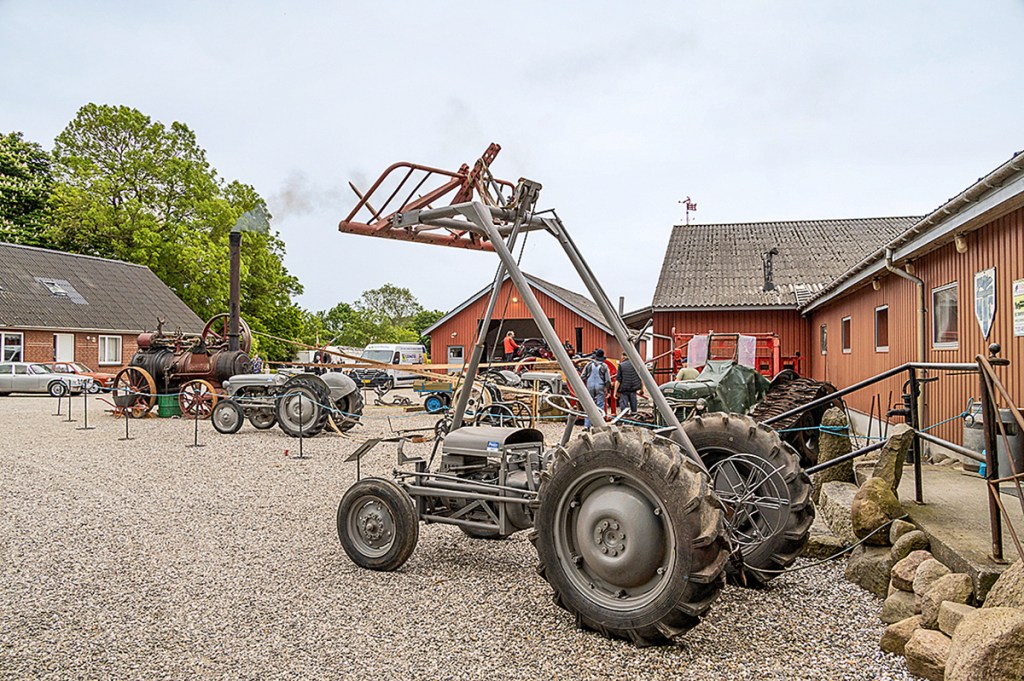
In the little field in front of the yard, some of the tractors are being used, pulling tillage equipment of a similar vintage. And on the meadow below the huge half-timbered barn, the tall grass is being cut with single- and double-chop harvesters — evoking a feel of the 1970s. Indeed, the Ferguson Days don’t convey a sense of excitement or hype but of a pleasant, family event.
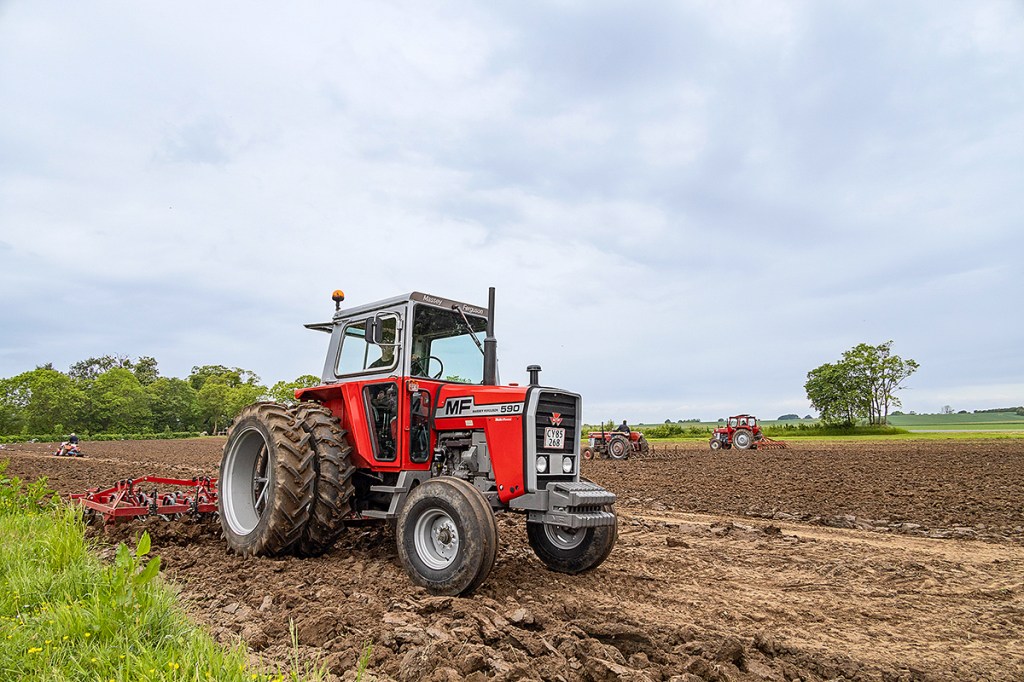
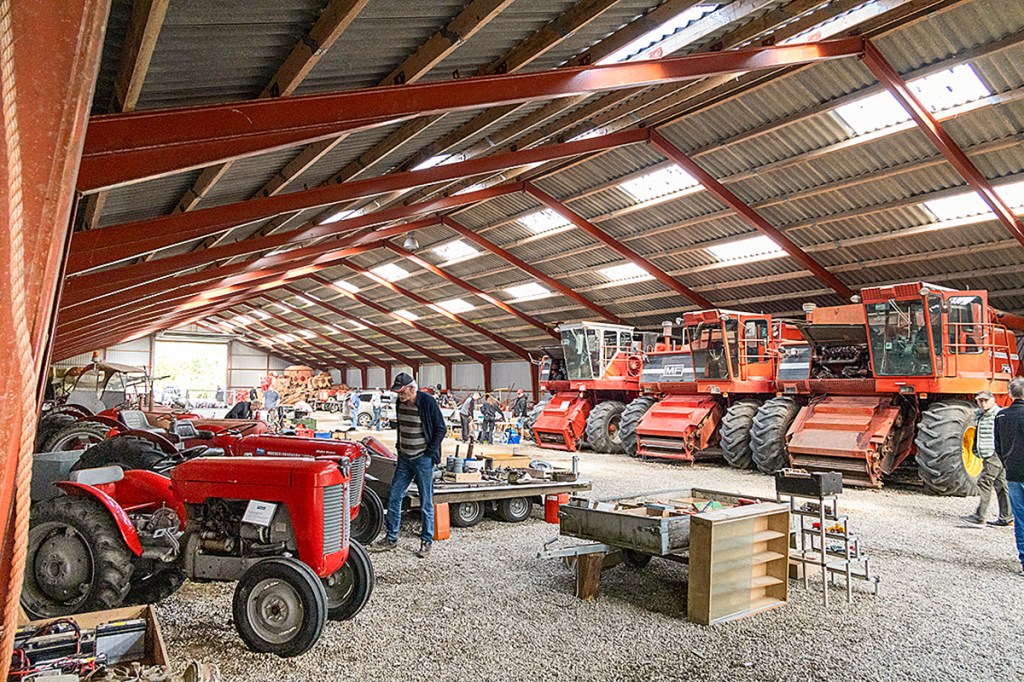
Yet, owner Henrik Nielsen is also a farmer and livestock producer, so the workshop is a busy place.
Grey friends
Currently the workshop hosts a huge, rear-wheel-drive Massey Ferguson 1150 with a V8 engine, which was produced in the US. The owner’s favourites, however, are the small, grey Fergies, of which he has numerous examples. When it’s not the Ferguson Day, the 250 or so tractors and implements are housed in two sheds on the farm. The line-up has at least one tractor from the years 1939 to 1970.
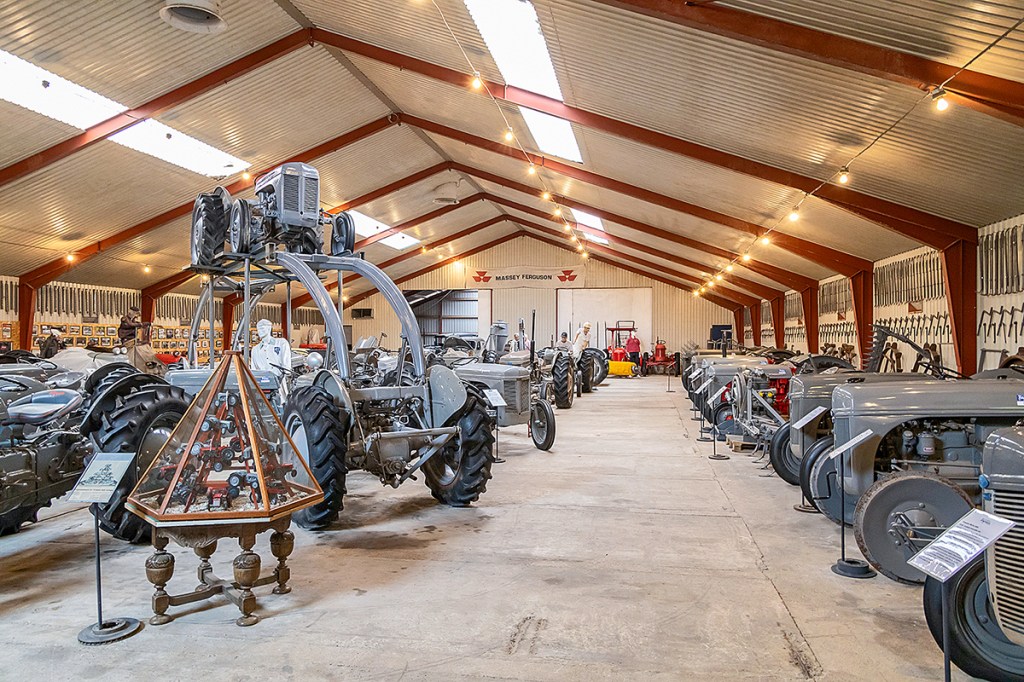
None of the models, says Henrik, is an ordinary, standard tractor. Two landmark items are the replica of two Fergusons that Sir Edmund Hillary enlisted for his successful expedition to the South Pole in 1958. The wide range of plantation, industrial, vineyard or military tractors illustrates the great diversity of the small Fergies. In addition, there are also various conversions. Just a couple of examples: there’s a tracked tractor based on a grey Ferguson TE model as well as a three-axle version of the Massey Ferguson 35.
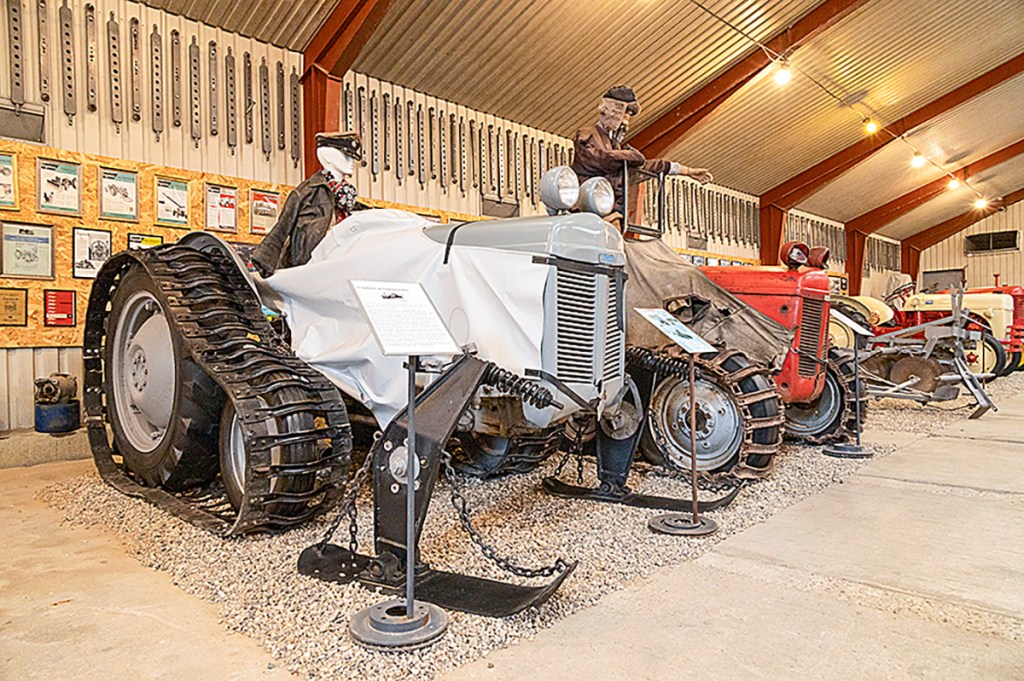
In addition, there’s the hugely impressive tandem tractor on duals, consisting of two coupled-up Ferguson 35 “Gold Belly” models. Equally spectacular are the three high-horsepower, articulated tractors: while the “small” Massey Ferguson 1200 and 1250 were popular enough in Europe, the dual- clad 4880 is a true US behemoth of which only a few were sold in Europe.
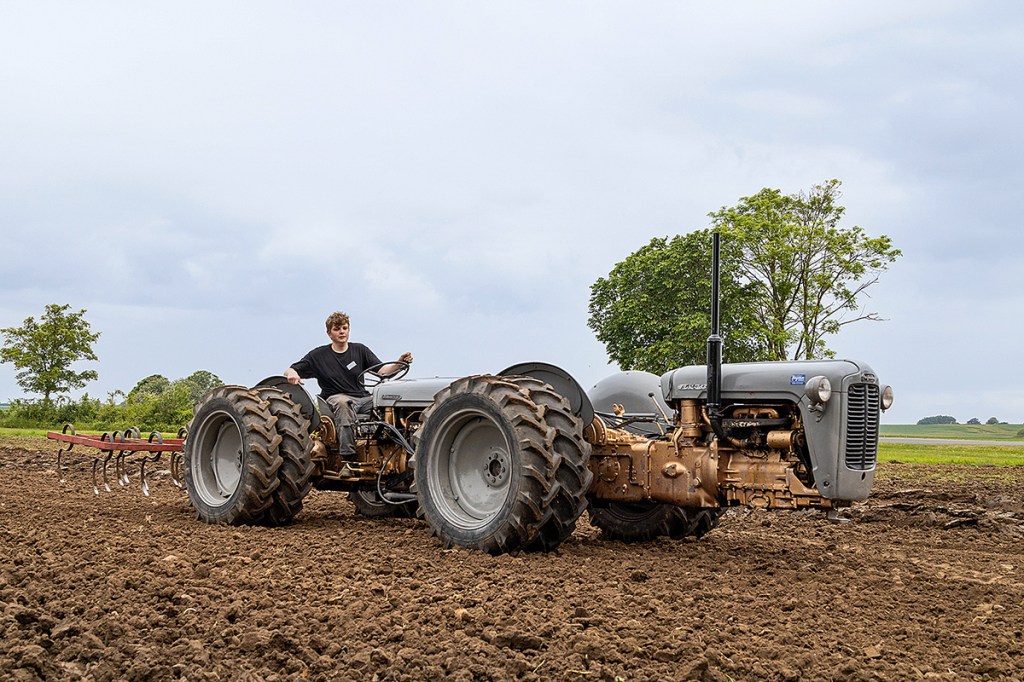
Monument preservation
In between the two halls is the museum’s landmark — a 12m high pyramid made of steel beams and 28 Ferguson tractors. Henrik erected this monument to honour all the farmers who spent countless hours on their Ferguson tractors in any weather. Another major highlight on the site is the huge old half-timbered barn from 1869, which was extensively restored in 2014.
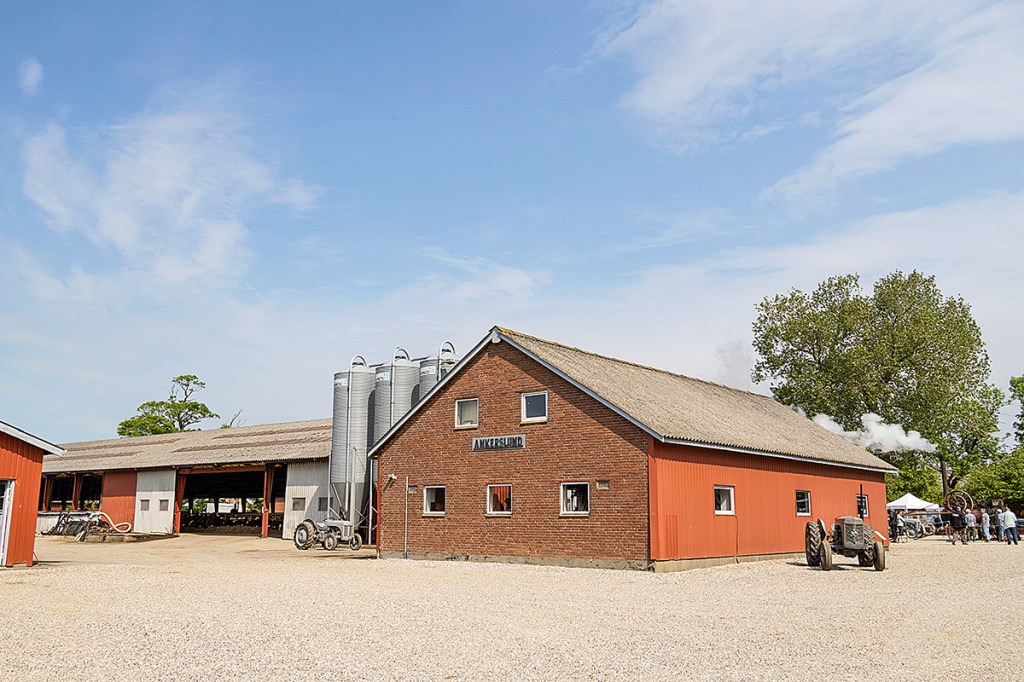
Incidentally, the museum, which opened in 2002, has experienced turbulent times in recent years. Due to health reasons, owner Henrik Nielsen had to reduce his workload and started to offer parts of the inventory for sale. Yet thanks to its many supporters, the end of the museum was avoided —fortunately, because a visit to the idyllically situated museum is still worth the effort.
Summary
The Ferguson Museum is an intriguing and well-presented attraction for any visitor to Jutland who has an interest in machinery and engineering.
Set in beautiful scenery, it is also an ideal place for spending time away with family. The best time to visit is the last weekend in May, when the Ferguson Days provide an excellent overview of the Massey Ferguson programme from 1919 to the 1970s. At the same time, the Skjold Tractor Club holds its annual meeting of vintage tractors a few kilometres away (see the next page). Not enough? You can also visit the nearby Glud open-air museum. Taken as a whole, you’re able to experience a Danish journey back in history in a short space of time.
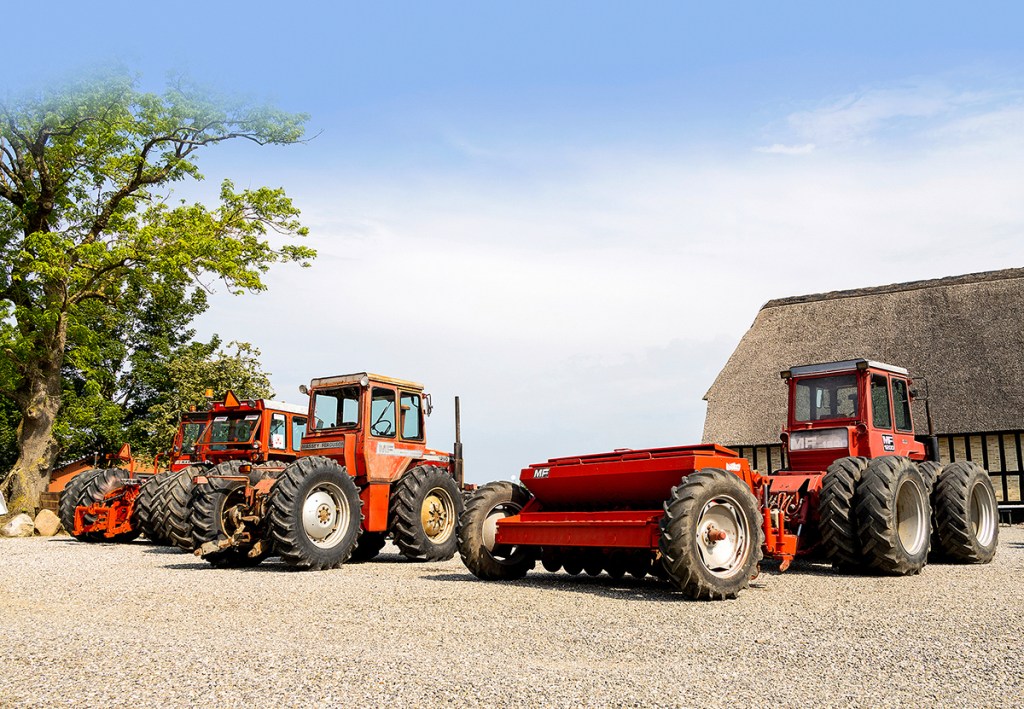
Traktorklubben Skjold — the tinkering and collecting club
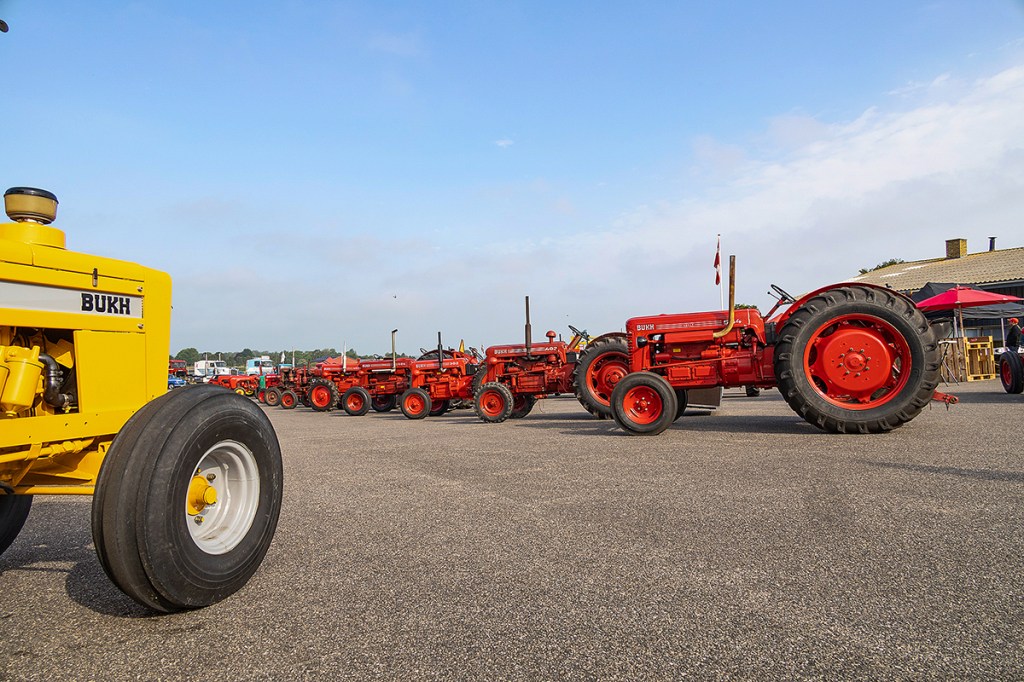
Just a few kilometres east of the Ferguson Museum, near the small village of Glud, is the base of the Skjold Tractor Club, which was founded more than ten years ago. The club stages a tractor exhibition on the same weekend as the Ferguson Days are held. Between them, the club members own over 100 tractors.
The 12 active members meet every Thursday evening for some spannering along with others who drop in when they can. Unlike the Ferguson Museum, however, the Skjold Tractor Club’s collection is only accessible by appointment. Check out Facebook.
This year’s meeting of the Traktorklubben Skjold revolved around the Danish engine manufacturer Bukh, of which almost 30 tractors were put on show. The brand celebrated its 120th anniversary last year. Throughout its history, the company’s main product had been boat engines, except for the 1950s to the 1970s, when Bukh also produced tractors.
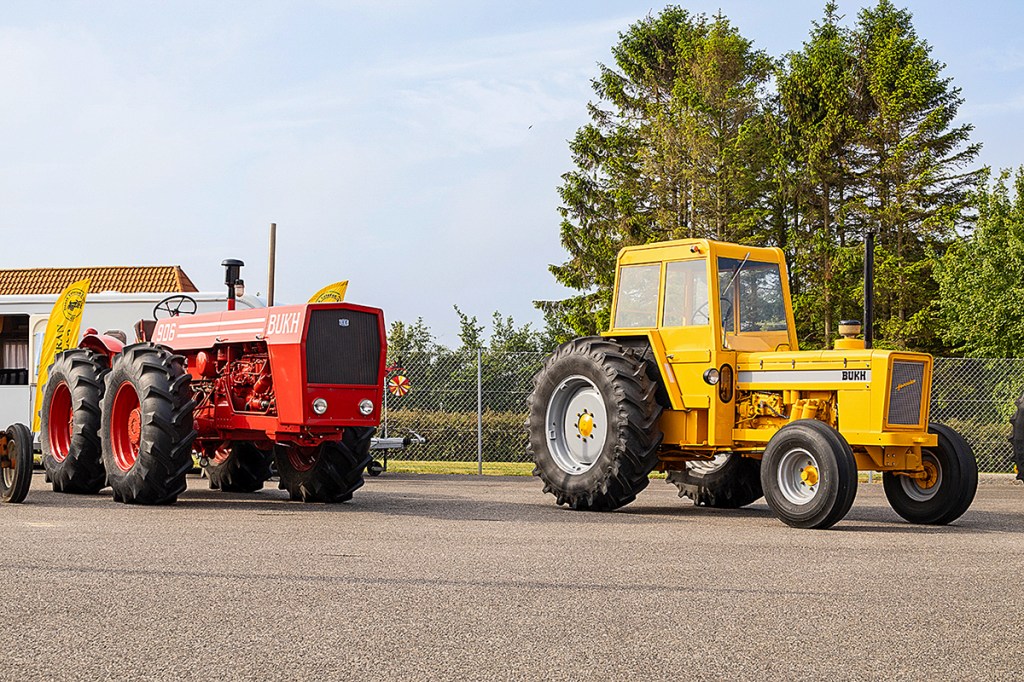
The jubilee show boasted a number of Bukh models that are owned by club members, and a number of very special exhibits including the Bukh 906, of which only a very small number was produced in cooperation with the Hungarian tractor manufacturer Dutra. Today, there is only one surviving example of this impressive tractor on four equally sized wheels.
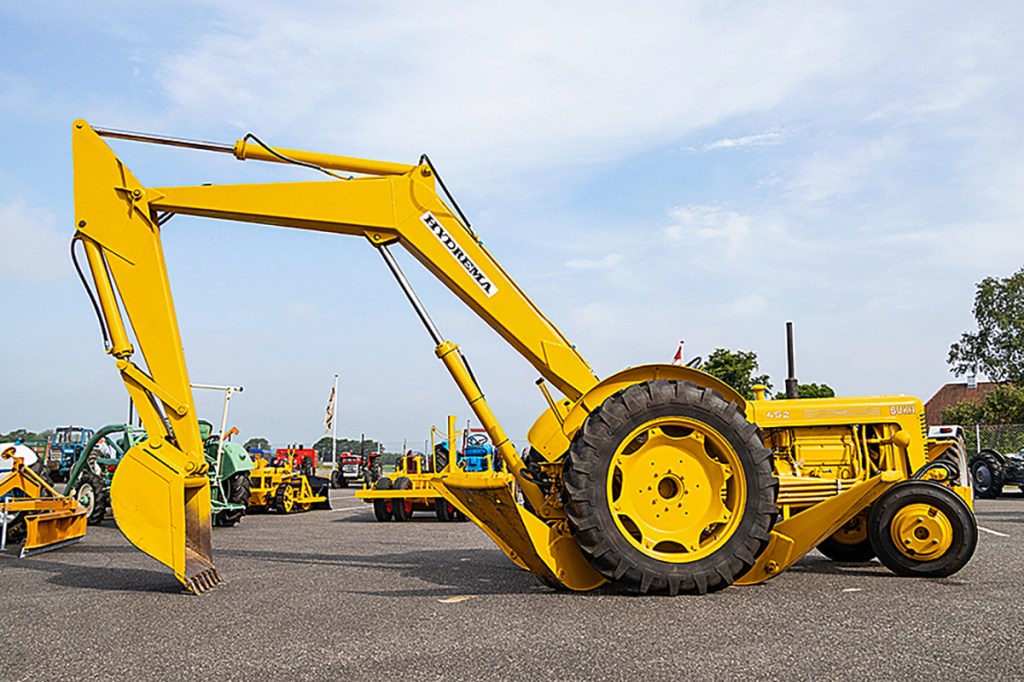
Parked right next to it was the no less stunning Bukh Hercules, rear-wheel-driven with a six-cylinder engine. This model was one of the last tractors built in Denmark before Bukh returned to its core business of engine construction in 1968. The jubilee exhibition also showcased two of the very early and very rare Bukh models that date back to the 1950s and bear the chassis numbers 9 and 24. What’s more, there was the 403 airfield tractor, in which a body with a wide cab was planted on a standard tractor.
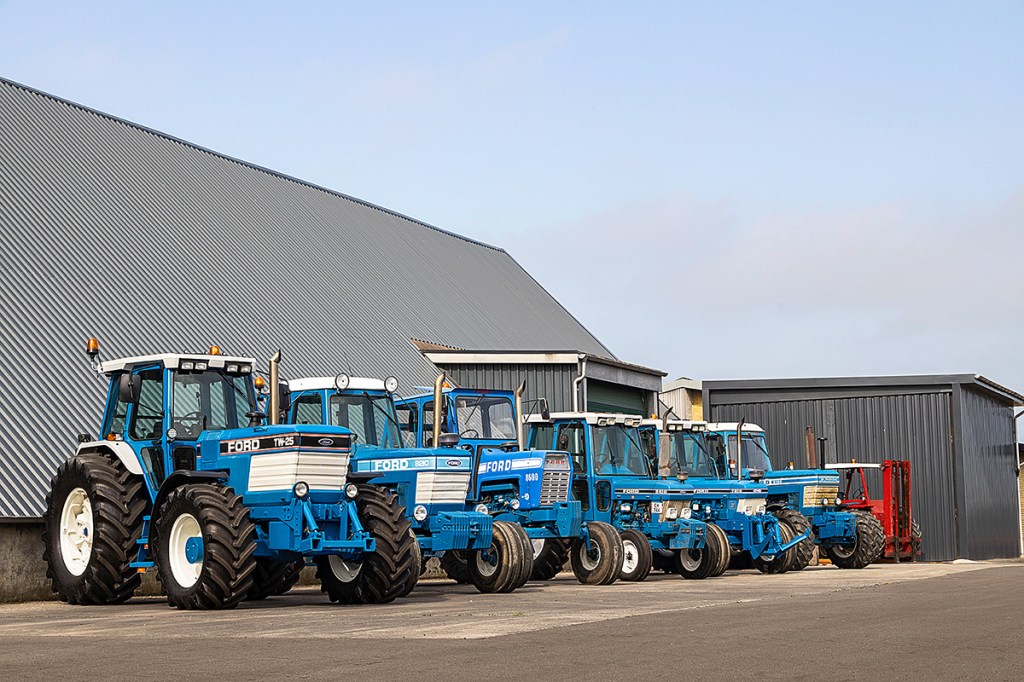
But the club also welcomes historic construction machinery and trucks, as well as youngtimers such as the Ford FW, IHC 1455 and Fiat 160-90, which were also proudly parked on the exhibition grounds, making the show a great synopsis of vintage, exotic and real-life machines.
Lucas Colsman
For more up-to-date farming news click here and subscribe now to profi and save.

